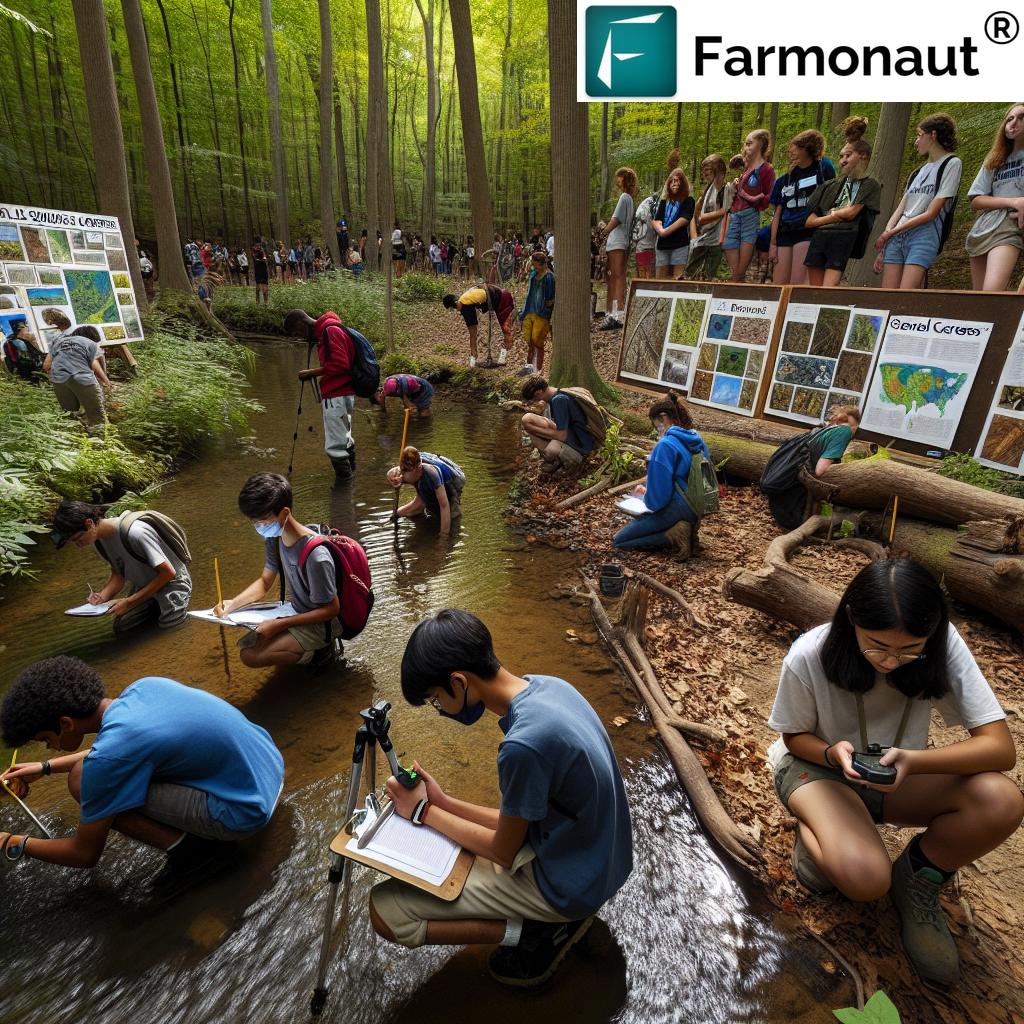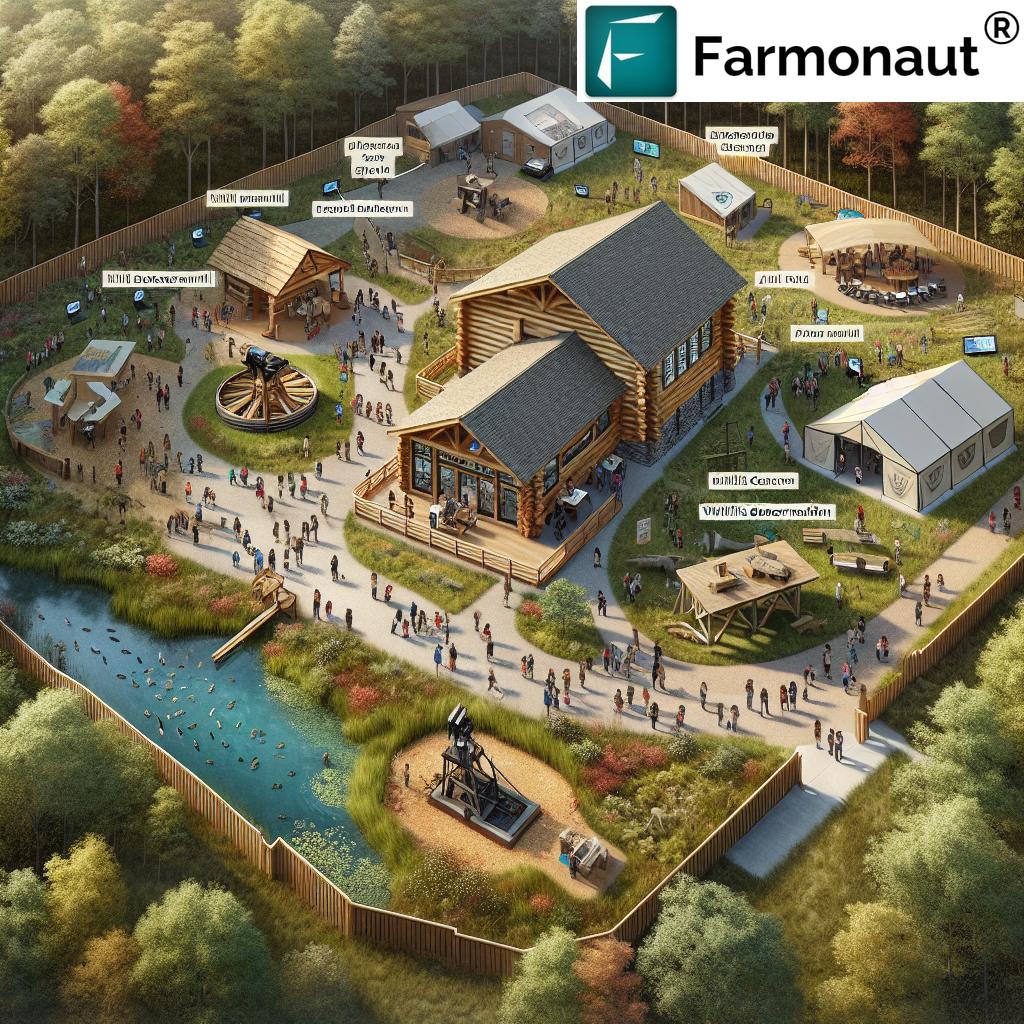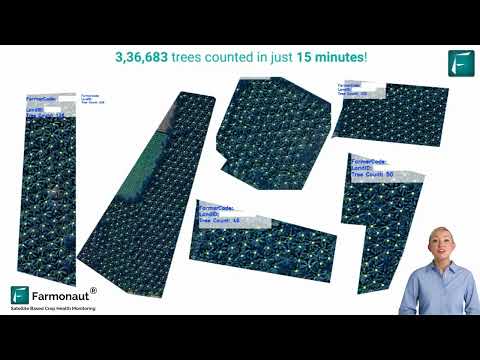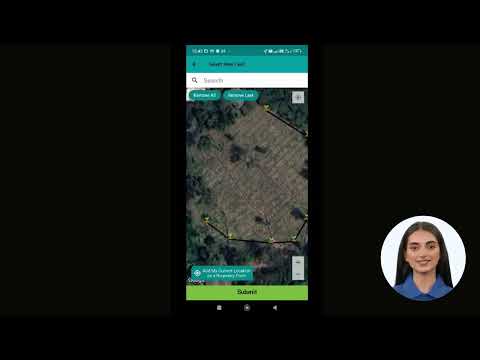Discover Maryland’s Natural Resources Careers Camp: Empowering High School Students in Forestry, Wildlife, and Conservation
“The Natural Resources Careers Camp in Maryland offers a week-long summer program for high school students in the Mid-Atlantic region.”
Welcome to an exciting journey into the world of natural resources management and conservation! We’re thrilled to introduce you to the Natural Resources Careers Camp (NRCC), a unique outdoor education program designed to empower high school students in the Mid-Atlantic region. This blog post will take you on a comprehensive exploration of the NRCC, its offerings, and the incredible opportunities it provides for aspiring environmental professionals.
What is the Natural Resources Careers Camp?
The Natural Resources Careers Camp is an immersive week-long summer camp that takes place at the Hickory Environmental Education Center in Accident, Maryland. This program is a collaborative effort by the Maryland Forestry Foundation, Allegany College of Maryland, and the Maryland Forest Service. The NRCC is specifically tailored for high school students who have a passion for outdoor activities such as camping, fishing, hunting, and tree-planting.
Scheduled from July 20 to July 26, this camp offers a unique blend of hands-on experiences, expert guidance, and career exploration in various fields related to natural resources management. Let’s dive deeper into what makes this camp an unmissable opportunity for aspiring conservationists and environmental enthusiasts!
The NRCC Experience: A Week of Discovery and Learning
At the Natural Resources Careers Camp, participants are immersed in a comprehensive curriculum that covers a wide array of subjects related to natural resources. Here’s what you can expect during this action-packed week:
- Forestry Focus: Gain insights into both traditional and urban forestry practices.
- Wildlife Management: Learn about wildlife conservation and habitat preservation techniques.
- Fisheries: Explore aquatic ecosystems and fishery management strategies.
- Wildland Firefighting: Understand the crucial role of fire management in ecosystem health.
- Park Management: Discover the intricacies of maintaining and preserving natural spaces for public enjoyment.
- Conservation Law Enforcement: Learn about the legal aspects of protecting natural resources.
- GPS and GIS Skills: Get hands-on experience with cutting-edge Geographic Information Systems technology.
This diverse curriculum ensures that campers get a well-rounded understanding of the various career paths available in the field of natural resources management.
Hands-On Activities: Bringing Theory to Life
One of the most exciting aspects of the NRCC is the emphasis on practical, hands-on learning. Throughout the week, campers will engage in a variety of activities that bring classroom concepts to life:
- Stream Surveys: Wade into local waterways to assess water quality and aquatic life.
- Tree Planting: Contribute to local reforestation efforts and learn about sustainable forestry practices.
- Wildlife Management: Participate in wildlife tracking and habitat assessment activities.
- Sawmill Tour: Witness the transformation of raw timber into usable lumber.
- Tree Climbing: Learn safe techniques for scaling trees using professional gear.
These activities not only provide valuable skills but also help students develop a deeper appreciation for the complexities of natural resource management and conservation efforts.

Networking and Professional Interactions
A key feature of the NRCC is the opportunity for students to interact directly with professionals from various environmental fields. Campers will have the chance to:
- Meet experts from the Department of Natural Resources and other relevant organizations.
- Engage with representatives from seven regional colleges and universities offering natural resources degree programs.
- Work in small groups of 6-7 students, guided by experienced counselors from Allegany College of Maryland’s Forest Technology program.
These interactions provide invaluable insights into potential career paths and help students make informed decisions about their future educational pursuits.
“Participants in the NRCC engage in diverse activities including stream surveys, tree planting, and wildlife management while exploring environmental careers.”
Career Pathways in Natural Resources Management
To give you a clearer picture of the diverse opportunities in this field, we’ve compiled a table outlining some of the exciting career paths you can explore:
| Career Field | Description | Key Skills | Education Requirements |
|---|---|---|---|
| Forester | Manage and protect forests, oversee timber harvests, and develop conservation plans | Silviculture, forest ecology, data analysis | Bachelor’s degree in Forestry or related field |
| Wildlife Biologist | Study animal behavior, habitats, and population dynamics | Animal identification, research methods, statistical analysis | Bachelor’s or Master’s degree in Wildlife Biology or Zoology |
| Conservation Scientist | Work to protect natural resources and maintain land quality | Environmental assessment, policy analysis, project management | Bachelor’s degree in Environmental Science or related field |
| GIS Specialist | Create and analyze maps for natural resource management | Spatial analysis, database management, cartography | Bachelor’s degree in Geography or GIS, with relevant certifications |
| Urban Planner | Design sustainable urban spaces that integrate natural elements | Urban design, environmental planning, community engagement | Master’s degree in Urban Planning or Environmental Planning |
This table provides just a glimpse of the many career opportunities available in the field of natural resources management. The NRCC aims to expose students to these and many more potential paths, helping them make informed decisions about their future careers.
The Importance of GIS in Natural Resource Management
One of the key technologies students will explore at the NRCC is Geographic Information Systems (GIS). This powerful tool has revolutionized the field of natural resource management, allowing professionals to make data-driven decisions and visualize complex environmental data.
At Farmonaut, we understand the critical role that GIS and satellite technology play in modern agriculture and environmental management. Our platform leverages these technologies to provide valuable insights for farmers and land managers. While the NRCC introduces students to GIS basics, platforms like Farmonaut demonstrate the real-world applications of these technologies in agriculture and natural resource management.
For those interested in exploring GIS technology further, Farmonaut offers a range of tools and resources:
- Farmonaut API: Access satellite and weather data for custom applications.
- API Developer Docs: Comprehensive documentation for integrating Farmonaut’s data into your projects.
- Mobile Apps: Experience GIS technology on-the-go with our user-friendly mobile applications.
Urban Forestry: A Growing Field in Natural Resource Management
One of the exciting areas that the NRCC covers is urban forestry. This rapidly growing field combines traditional forestry practices with urban planning to create sustainable, green cities. Urban foresters play a crucial role in:
- Designing and maintaining green spaces in urban areas
- Managing street trees and park forests
- Mitigating urban heat island effects
- Improving air and water quality in cities
- Enhancing urban biodiversity
The NRCC provides students with insights into this innovative field, showcasing how natural resource management principles can be applied in urban environments to create more livable, sustainable cities.

Conservation Law Enforcement: Protecting Our Natural Heritage
Another fascinating career path that students will explore at the NRCC is conservation law enforcement. This field combines a passion for nature with a commitment to upholding environmental laws and regulations. Conservation law enforcement officers are responsible for:
- Patrolling protected areas to prevent poaching and illegal resource extraction
- Educating the public about conservation laws and regulations
- Investigating environmental crimes
- Assisting in wildlife management and rescue operations
- Enforcing hunting and fishing regulations
By introducing students to this field, the NRCC highlights the importance of legal frameworks in protecting our natural resources and wildlife.
The Role of Technology in Modern Conservation Efforts
As we move further into the 21st century, technology plays an increasingly important role in conservation and natural resource management. The NRCC introduces students to some of these cutting-edge technologies, including:
- GPS and GIS: For mapping and analyzing spatial data
- Remote Sensing: Using satellite imagery to monitor environmental changes
- Wildlife Tracking Devices: To study animal movements and behaviors
- Drone Technology: For aerial surveys and monitoring
At Farmonaut, we’re at the forefront of applying these technologies to agriculture and land management. Our platform demonstrates how satellite imagery and AI can be used to monitor crop health, optimize resource use, and promote sustainable farming practices.
Preparing for a Career in Natural Resources
For students considering a career in natural resources management, the NRCC provides an excellent starting point. However, the journey doesn’t end there. Here are some steps students can take to further prepare for a career in this field:
- Pursue Relevant Education: Consider degree programs in forestry, wildlife biology, environmental science, or related fields.
- Gain Practical Experience: Seek internships, volunteer opportunities, or part-time jobs in conservation organizations or parks.
- Develop Technical Skills: Familiarize yourself with GIS software, data analysis tools, and other relevant technologies.
- Stay Informed: Keep up with current environmental issues and conservation practices through journals, conferences, and online resources.
- Network: Connect with professionals in the field through events, social media, and professional organizations.
Remember, the field of natural resource management is diverse and constantly evolving. Staying curious and adaptable will serve you well in this dynamic career path.
The Future of Natural Resource Management
As we face increasing environmental challenges, the role of natural resource management professionals becomes ever more critical. Future careers in this field will likely focus on:
- Climate Change Mitigation and Adaptation
- Sustainable Resource Extraction
- Biodiversity Conservation
- Urban Ecology and Green Infrastructure
- Ecosystem Restoration
The NRCC aims to prepare students for these future challenges by providing a solid foundation in current practices while also introducing emerging trends and technologies in the field.
Opportunities Beyond Traditional Natural Resource Management
While the NRCC focuses primarily on traditional natural resource management careers, it’s worth noting that the skills and knowledge gained can be applied to a variety of related fields. Some alternative career paths that students might consider include:
- Environmental Education: Teaching others about nature and conservation
- Eco-Tourism: Developing and managing sustainable tourism experiences
- Environmental Policy: Shaping laws and regulations to protect natural resources
- Sustainable Agriculture: Applying conservation principles to food production
- Environmental Journalism: Reporting on environmental issues and conservation efforts
These diverse opportunities highlight the versatility of a background in natural resource management and conservation.
The Importance of Soil Conservation
One crucial aspect of natural resource management that the NRCC covers is soil conservation. Healthy soil is fundamental to both natural ecosystems and agriculture. At the camp, students will learn about:
- Soil composition and health indicators
- Erosion prevention techniques
- Sustainable agricultural practices that preserve soil quality
- The role of soil in carbon sequestration and climate change mitigation
Understanding soil conservation is essential for many careers in natural resource management, from forestry to sustainable agriculture.
Farmonaut: Supporting Sustainable Agriculture Through Technology
While the NRCC provides an excellent introduction to natural resource management, technologies like those offered by Farmonaut are pushing the boundaries of what’s possible in sustainable land management. Our platform uses satellite imagery and AI to help farmers and land managers make data-driven decisions that promote sustainability.
Some key features of Farmonaut include:
- Real-time crop health monitoring
- AI-based advisory systems for optimal resource use
- Soil moisture analysis
- Weather forecasting for agricultural planning
These tools demonstrate how technology can be leveraged to promote sustainable practices in agriculture and natural resource management.
Frequently Asked Questions
Q: Who is eligible to attend the Natural Resources Careers Camp?
A: The camp is open to high school students in the Mid-Atlantic region who have an interest in outdoor activities and natural resource management.
Q: How much does the camp cost?
A: Tuition and fee information can be found on the NRCC website. Some financial assistance may be available for Maryland students.
Q: How many spots are available at the camp?
A: The camp has 42 spots available, so early application is recommended.
Q: What should I bring to the camp?
A: A detailed packing list will be provided upon registration, but generally, you should bring outdoor clothing, sturdy shoes, and a willingness to learn!
Q: Will attending this camp guarantee me a job in natural resource management?
A: While the camp doesn’t guarantee employment, it provides valuable experience and networking opportunities that can be beneficial for future career prospects in the field.
Conclusion: Empowering the Next Generation of Conservation Leaders
The Natural Resources Careers Camp in Maryland offers an unparalleled opportunity for high school students to explore the diverse and exciting field of natural resource management. Through hands-on experiences, expert guidance, and exposure to cutting-edge technologies, the NRCC empowers the next generation of conservation leaders.
Whether you’re passionate about forestry, wildlife conservation, or sustainable agriculture, the skills and knowledge gained at this camp will serve as a strong foundation for your future career. As we face growing environmental challenges, the world needs dedicated, knowledgeable professionals to lead the way in sustainable resource management.
We encourage all eligible students to consider applying for this unique educational adventure. It’s not just a summer camp – it’s a gateway to a fulfilling career in protecting and managing our planet’s precious natural resources.
Remember, the future of our environment is in your hands. Are you ready to take the first step towards becoming a steward of our natural world?
Earn With Farmonaut: Affiliate Program
Earn 20% recurring commission with Farmonaut’s affiliate program by sharing your promo code and helping farmers save 10%. Onboard 10 Elite farmers monthly to earn a minimum of $148,000 annually—start now and grow your income!







